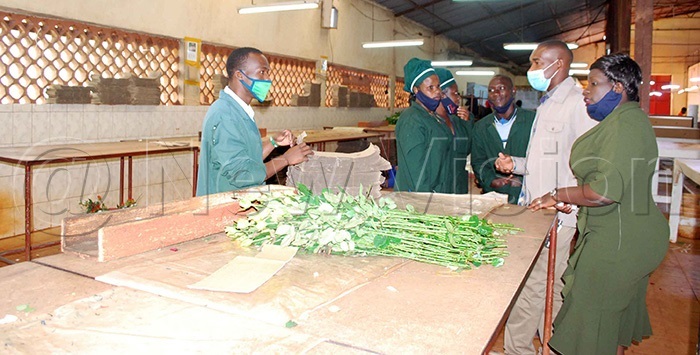Flower firms call for expedited review of the minimum wage bill
In Uganda, workers’ wages remain a relevant on-going conversation given the country’s minimum wage standing at Shs6, 000. For over 30 years ago.
FLORISTS|WAGE BILL|FTA
Workers in flower firms have called for expedited review of the Minimum Wage Bill as means of protecting workers from exploitation.
The bill which was passed by parliament in 2018 suffered a setback when the president declined to ascent to it.
The Minimum Wage Bill, 2018 empowers the Minister of labor to appoint a Minimum Wage Board to fix all minimum wages for various sectors and is also mandated to announce the minimum wages annually.
According to Yvonne Nagujja the Human Resource Manager Jambo Roses, a minimum wage is very important because it puts an employee on a certain level and also helps them to move forward.
She said that usually in Flower farms it's the employers and union who have been determining the minimum wage noting that at Jambo roses, workers used to earn sh90,000 with an additional of 6.5% before the introduction of the floor wage by Fairtrade Africa (FTA).
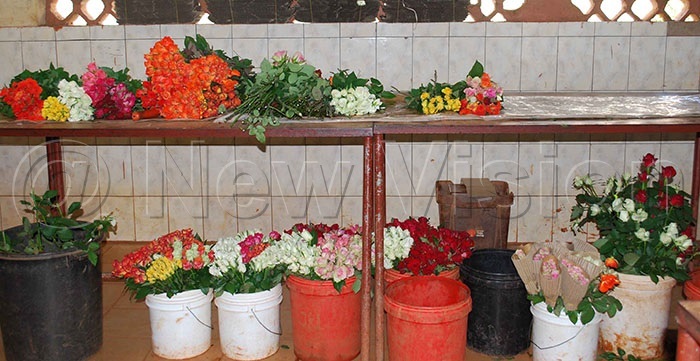
She said the introduction of floor wage has improved the relationship between the workers and the union which has been agitating for a better salary for the workers.
"All along, we have been pulling ropes with the union but the introduction of floor wage made the union lose words since what they were agitating for was much lower than what was introduced and being paid to workers currently," she said.
Nagujja explained that before the introduction of the floor wage by FTA, the company could lose workers every month.
"We would recruit someone today and tomorrow they are gone and you find that in a month, around 30 to 40 people would have gone to concentrate on doing their things other than concentrating on the farm.
At the moment, the floor wage paid has made most of the workers concentrate on their work while committed," she said, adding that several companies are still paying peanut to their workers, calling for them to subscribe to Fairtrade to allow their workers benefit.
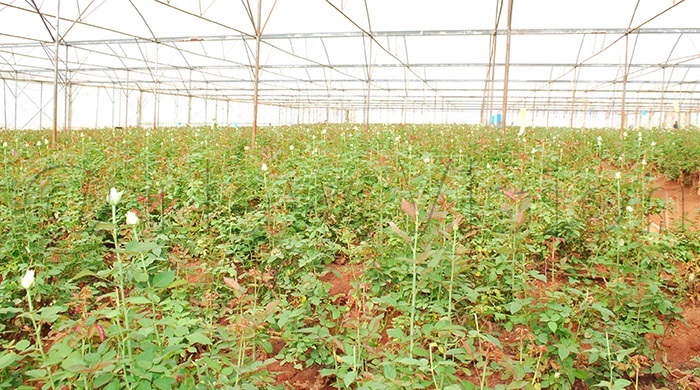
Fairtrade is a global movement that addresses the injustices of conventional trade by supporting smallholder farmers and workers to secure better terms of trade.
It's a member of the wider International Fairtrade movement representing Fairtrade certified producers in Africa, and the Middle East producers of traditional export commodities such as coffee, cocoa, tea, cotton, bananas, mango, and non-traditional commodities including shea butter and rooibos tea.
According to Tonny Kibirige, the program officer FTA-Uganda office, the organisation currently represents over 1,050,000 producers across 33 countries in Africa.
FTA secretariat is located in Nairobi, operates in four regional networks: Eastern and Central Africa Network (FTA-ECAN), West Africa Network (FTA-WAN) based in Accra, Ghana; Southern Africa Network (FTA-SAN) based in Cape Town, South Africa; and the Middle East and North Africa Network (MENA)
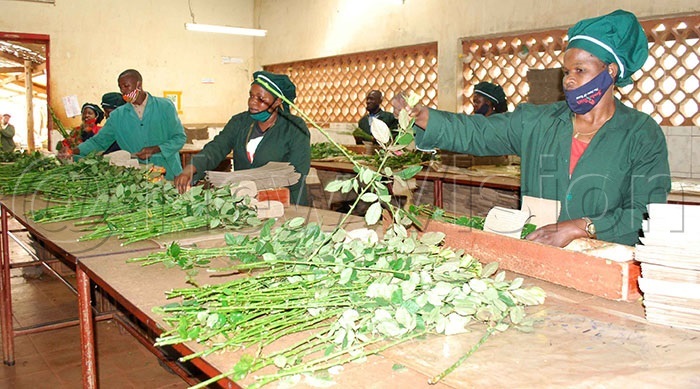
The Nairobi office represents producers from Burundi, DRC, Ethiopia, Kenya, Rwanda, Tanzania and Uganda with a view of supporting the development of thriving farming and worker communities that have more control over their futures.
Kibirige observed that Fairtrade has done a lot to benefit small-scale farmers and workers, who are amongst the most marginalised groups globally, through trade to enable them to maintain their livelihoods and reach their potential.
"For several years now, various stakeholders have taken a keen interest in East Africa's flower industry, with a particular focus on workers' wages which studies have shown fall below poverty lines limiting workers' ability to meet their essential needs and afford a decent standard of living," Kibirige said.
In Uganda, he stated that workers' wages remain a relevant on-going conversation given the country's minimum wage standing at Shs6, 000. For over 30 years ago.
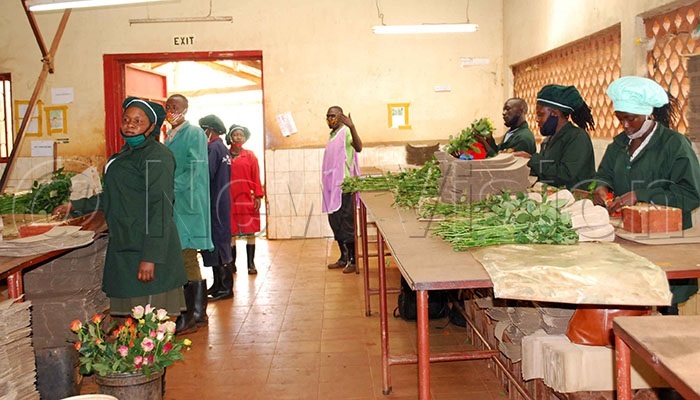
"The figure has been overtaken by the changing waves of political, social and economic climates. A change is, therefore, necessary to respond to the existing situation," he emphasised.
He, however, said that in response to this, FTA in 2017 acted to support flower farm workers in Uganda and other similarly affected flower-growing countries in the region especially Ethiopia and Tanzania.
"FTA introduced the Fairtrade Floor Wage in flowers, requiring certified flower farms to adopt the World Bank poverty line of US$1.9 a day as a minimum floor for the cash wages received by workers.
"For instance, at Wagagai Ltd, a flower farm located in Entebbe, workers have received annual increments, cumulatively resulting in a 28.9% wage rise where the lowest paid workers are now earning a monthly wage of sh202,000.

Others like Jambo Roses and Aurum Roses have each increased their base wage by an impressive 120%," he said.
He explained that as a result of the improved wages, the 3 Ugandan flower farms alongside other Fairtrade Certified farms in the country are experiencing lower turnover and improved worker productivity.
Achen Josephine, a worker at Jambo Roses said, was first recruited on a salary of sh95,000 but because of patience at work, it was increased to sh202,000 which has changed her livelihood.
"I can now pay fees for my children, pay rent and also start up new projects to sustain myself," she said.
